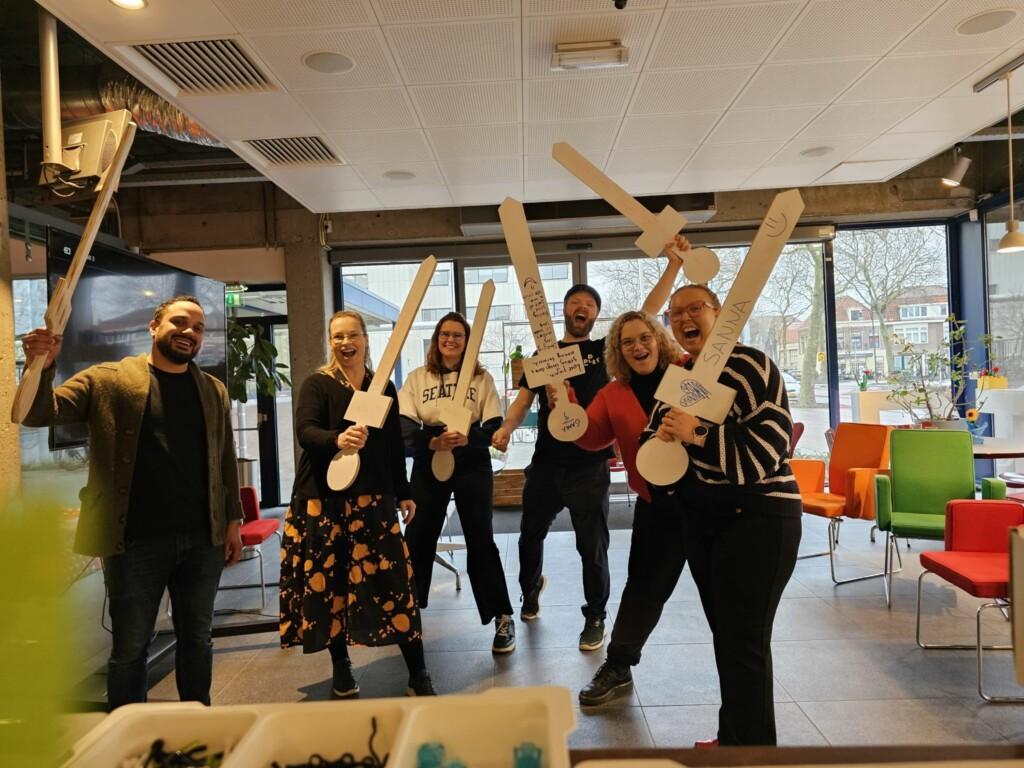
Exploring the Idea of Regenerative Business
HUBS Excursion to Hague, Netherlands in January 2024
Contact person

Saara Eriksson
Development Specialist, Project Manager @Sprint
This travel story was written in cooperation with Marika Vuorenmaa and Sanna Tahlo.
Copilot was used in the translation from Finnish to English.
Partnership with the The Hague University of Applied Sciences (THUAS)
The Hague University of Applied Sciences (THUAS) is a strategic partner of TAMK. We visited THUAS with HUBS’s sustainable entrepreneurship representation, specifically to learn about their service offerings and teaching methods. At the same time, we aimed to strengthen the HUBS team’s expertise in themes such as sustainable development and entrepreneurship, and regenerative business. Hague is known as one of the most important and advanced ecosystems in Europe for sustainable development and positive social impact so it’s a perfect place for inspiration and gaining new insights!
In The Hague, there is a belief in a model where entrepreneurs’ good economic success and impact on society can go hand in hand. The city is internationally known as the city of peace and justice, which provides an excellent growth environment for companies planning sustainable and renewing growth. We got to know the actors of this ImpactCity ecosystem and our partner university’s sustainability-promoting programs on our study trip in January 2024.
Regenerative Business
Regenerative or renewing business means solutions that not only preserve the environment but also promote its recovery and well-being. To achieve this way of operating, we need to move from slowing down problems to strong ideation of solutions. Universities have a big role as educators of innovation, problem-solving skills, and multidisciplinary cooperation.
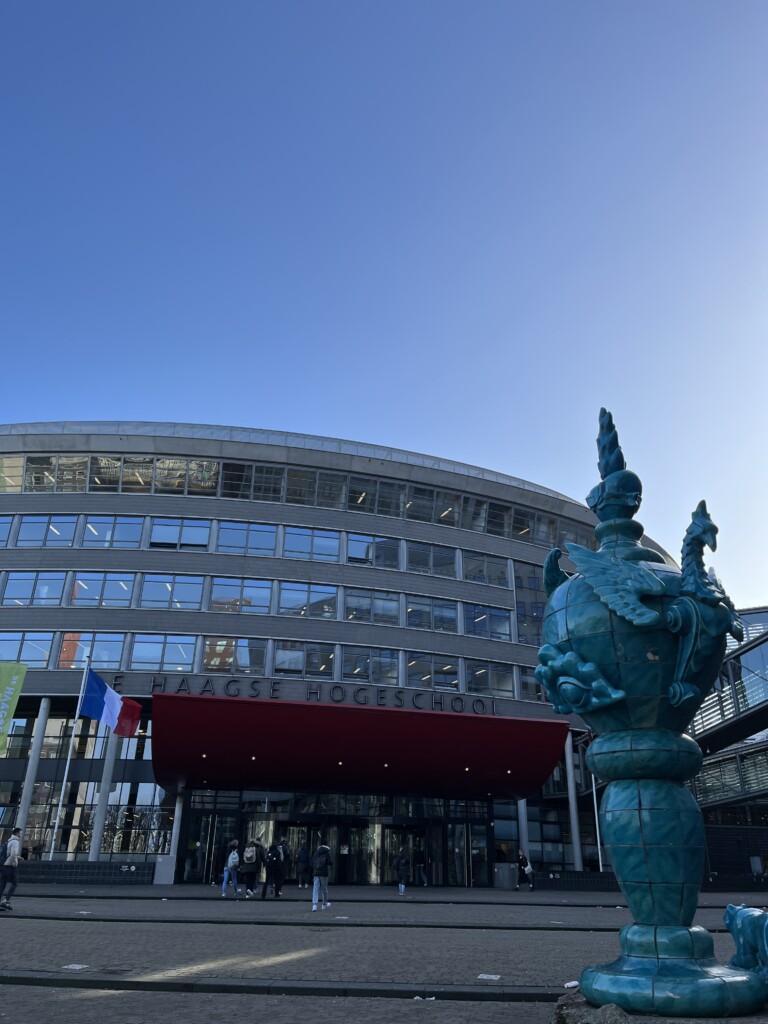
Circular Economy Research Group at THUAS
At THUAS, there is a ‘Circular Economy’ research group, from whose activities, especially directed towards the textile industry, we found interesting examples to be applied to HUBS courses. We got to meet the research group’s leader, Kim Poldner and lecturer Albert Kraaji who has developed a tool for economic and sustainability validations. He introduced us to a model by which students can assess the impact of their business ideas. This model and the tool developed for it would be useful in HUBS courses, but also in other courses in Tampere Universities.
Getting to know each other by playing with Legos – visit to PLNT, Leiden
From the actors of The Hague’s entrepreneurship ecosystem, we got to know the entrepreneurship center PLNT, located in Leiden, thoroughly. The purpose of the operation is to create new entrepreneurs and support active entrepreneurs on their way to success, i.e., to make our world a slightly better place. In building and inspiring the community, the centrally located PLNT house, regular events, a lunch place, and rentable spaces were in use. One of the methods they use to strengthen teamwork and problem-solving is Lego Serious Play, which we got to try firsthand. From this, we took the lessons and inspiration in store and seriously consider, if we could train HUBS team in this method.
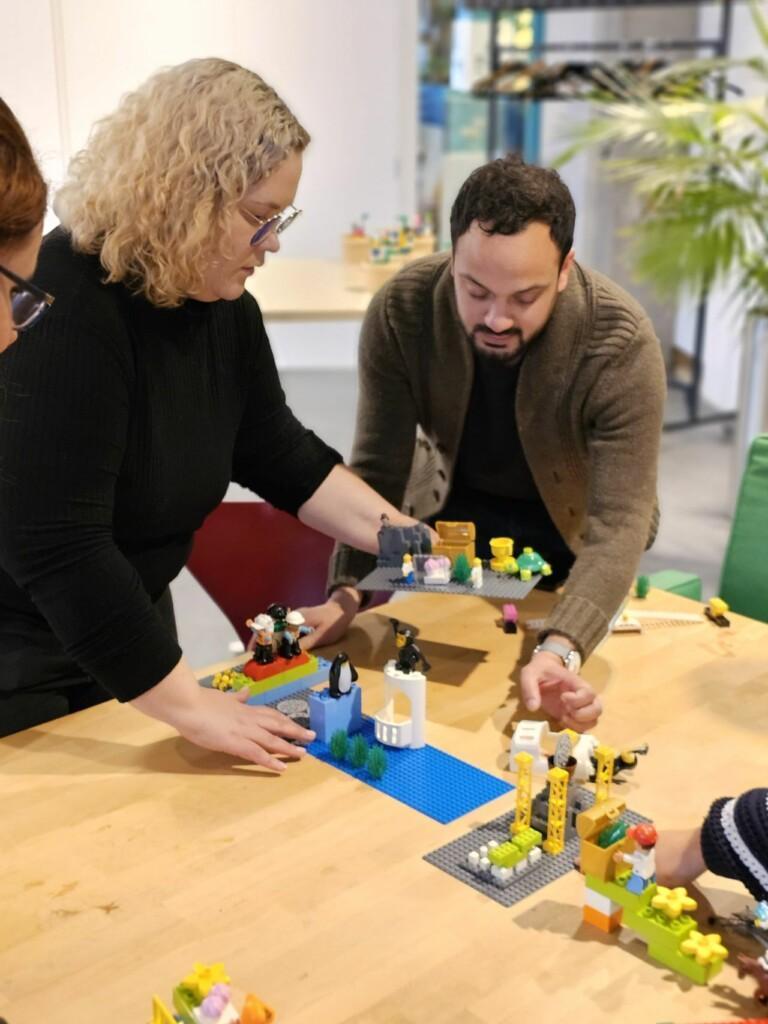
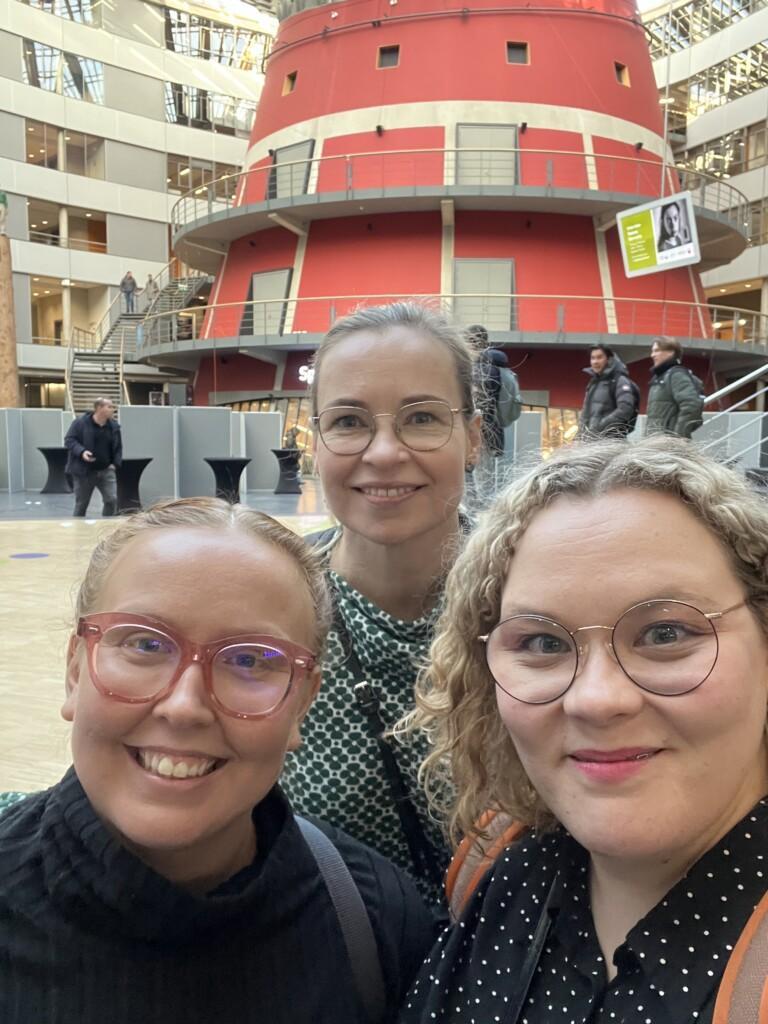
Grant supporting our excursion
A warm thank you to K.P. Ruuskanen Foundation for the grant that enabled our team from the Tampere higher education community to explore Hague’s higher education, entrepreneurship, and urban ecosystem, benchmark service offerings, and teaching methods. This study trip reinforced our idea of the direction of entrepreneurship training and brought more potential partners.
We are looking forward to cooperating with our new contacts, and will put our new insights into practice for example in the development of Sprint Innovation Festival for 2025!
Stories
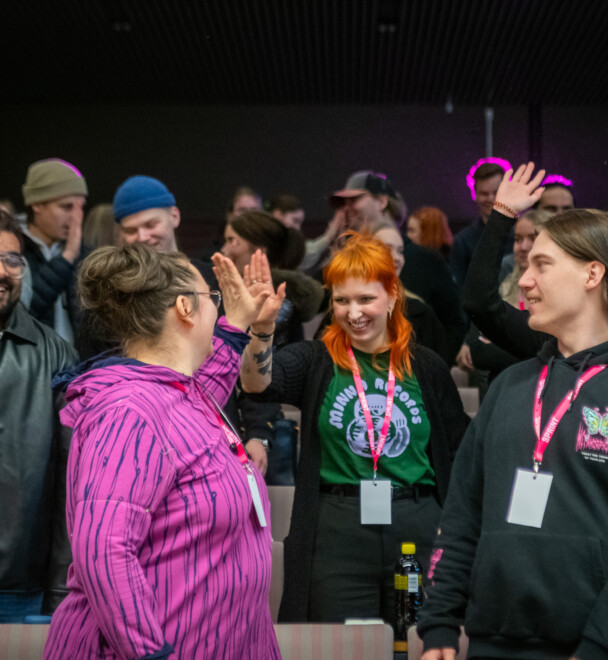
I was surprised by everything I could achieve – Helena’s best Sprint lessons
In this blog, Helena shares practical lessons, surprises, and insights from the Sprint Innovation Festival from the perspective of a participant!
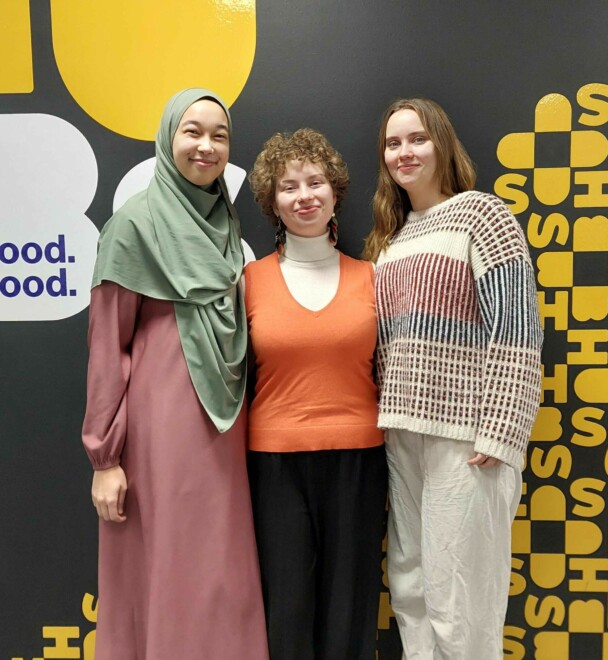
How could a humanities student benefit from entrepreneurial skills?
Discover the perspectives of our student team on entrepreneurial skills from the viewpoint of humanities and social sciences students!
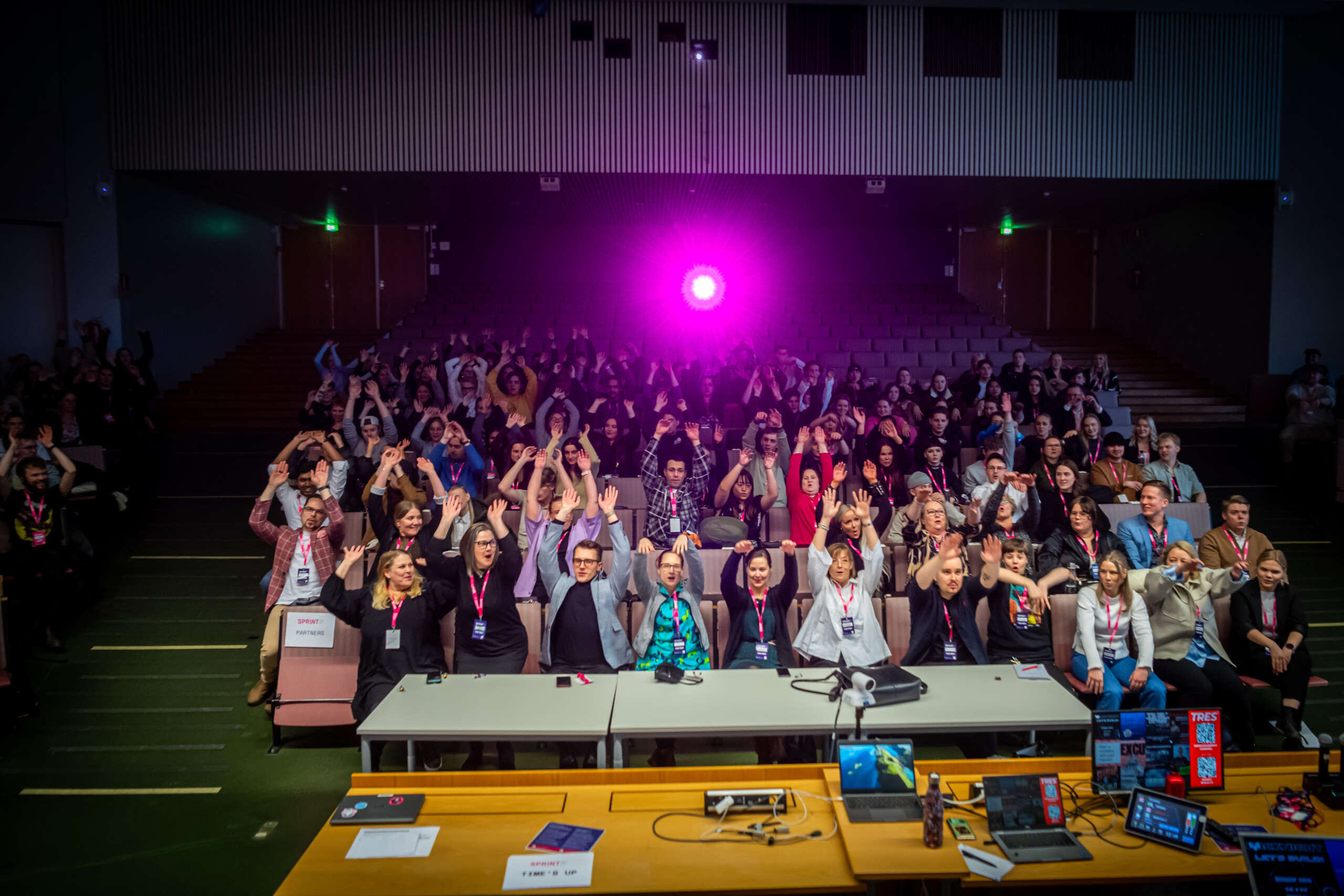
Toward a more Humane Working Life Through Entrepreneurship? Sprint Partner Kasvussa Oy’s story
Why is participating in the Sprint Innovation Festival as a working life partner important for Kasvussa Oy? Founder Noora shares her thoughts!